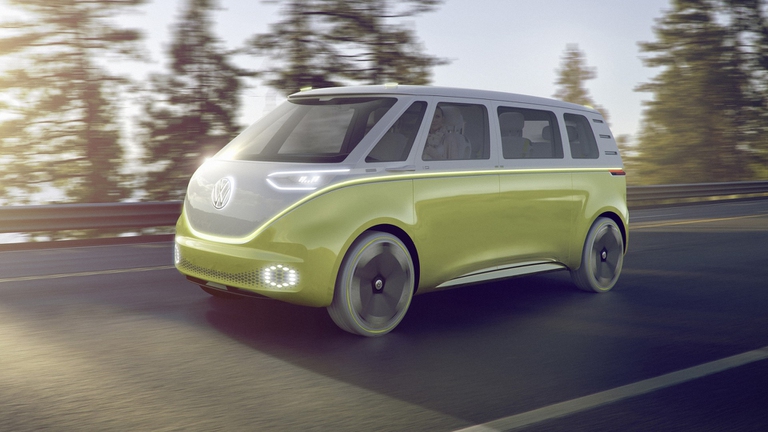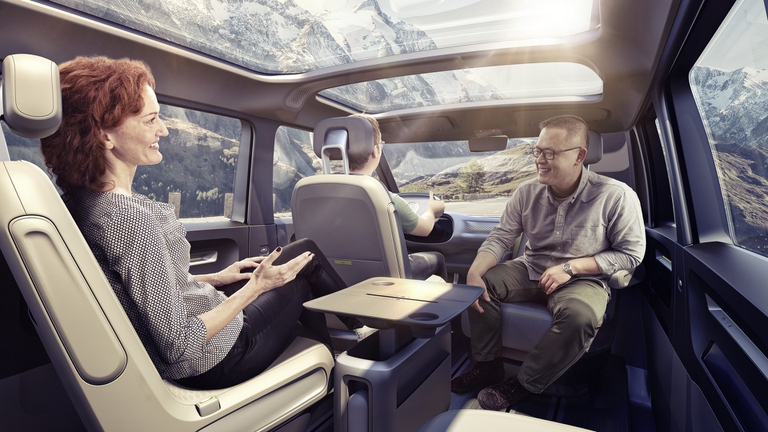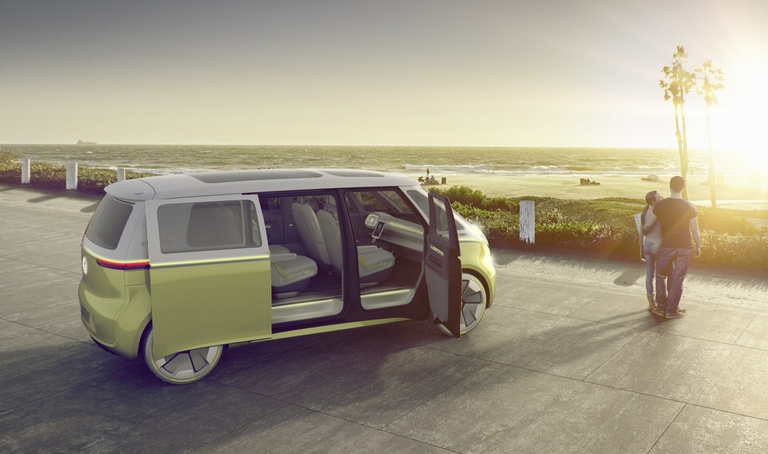
Germany made the first step towards banning petrol and diesel-fuelled vehicles. If the federal resolution is passed into law, starting from 2030 only electric cars will be allowed on the country’s streets.
Just as fires often give way to new growth, after the Dieselgate scandal, which saw Volkswagen cheating on US emission rules, the German car manufacturer radically changed course, beginning to focus on sustainable mobility. The German car company aims to propose thirty zero-emission models and produce at least one million battery electric vehicles by 2025. An ambitious mission
Just as fires often give way to new growth, after the Dieselgate scandal, which saw Volkswagen cheating on US emission rules, the German car manufacturer radically changed course, beginning to focus on sustainable mobility. The German car company aims to propose thirty zero-emission models and produce at least one million battery electric vehicles by 2025. An ambitious mission that pushed the Wolfsburg-based company to unveil a new I.D. (Intelligent Drive) electric propulsion vehicle at the Detroit Car Show. The mythical Volkswagen van has now been brought back.
The Transporter T1 minivan – nicknamed Bulli – has become an icon of the ‘60s. One of the most famous and appreciated models produced by the German car manufacturer thanks to its robustness, simplicity and versatility that made it the ideal means of transport for hippies and flower children in Europe as well as in the West Coast of the United States. And now this vehicle has a new heir. An electric and self-driving van named I.D. Buzz, which boosts exceptional modular interiors and high technology.
In the German concept – which is perfect for travelling and is almost five metres long – once the driver turns the self-driving mode on, it is possible to turn the seats by 180 degrees and transform the cabin into a lounge space or a bedroom. It has two boots and eight seats, a steering wheel with touch controls that can retract into the instrument panel when autonomous mode is activated. And the dashboard? It’s portable, since drivers can see information through a removable tablet or a specific app installed in their smartphone.
The design is intentionally vintage, but the I.D. Buzz is full of technology. With the automatic recognition of the driver, for example, it is possible to adapt every parameter of the car according to the driver’s taste and habits, while the head-up display uses augmented reality. And that’s not all. Thanks to its cloud service the vehicle is always updated in real time, without the need to go to car markets or mechanic’s workshops. The vehicle has two “zero emission” motors of 370 hp and all-wheel drive.
The German electric minivan uses batteries of 111 kWh that can be charged to 80 percent in about thirty minutes thanks to high capacity chargers of 150 kW. The rechargeable batteries are inserted in the platform, so to lower the focal point – which improves the quality of driving – and not to occupy space in the cabin. Thanks to these batteries the car travels 600 kilometres on a full charge according to the New European Driving Cycle (NEDC), and 434 kilometres in real conditions, while its sprint time of 0-96 km/h in less than five seconds is comparable to that of sports cars. The Volkswagen concept, which will be available even in a more affordable version with rear-wheel drive, 268 hp and batteries of 83 kWh, isn’t merely a style exercise like the show car Budd-e unveiled in 2016. Based on the MEB platform, invented by the Wolfsburg-based giant for zero-emission propulsion vehicles, I.D. Buzz is rumoured to be sold all around the world by 2021.
Siamo anche su WhatsApp. Segui il canale ufficiale LifeGate per restare aggiornata, aggiornato sulle ultime notizie e sulle nostre attività.
![]()
Quest'opera è distribuita con Licenza Creative Commons Attribuzione - Non commerciale - Non opere derivate 4.0 Internazionale.
Germany made the first step towards banning petrol and diesel-fuelled vehicles. If the federal resolution is passed into law, starting from 2030 only electric cars will be allowed on the country’s streets.
Oslo no longer wants to deal with cars. After the main political parties have reached an agreement to ban the sale of gasoline and diesel vehicles by 2025, the municipality of Norway’s capital has launched a new campaign against cars. The aim is to ban all cars from the city centre by 2019. Hybrid and electric
Unveiled in Berlin by Alstom, this sustainable hydrogen-powered train that produces zero emissions will replace diesel-burning ones.
The prototype was developed by two Palestinian 23-year-old students, who self-funded. The car reaches a speed of up to 30 km/h.
Commercial vehicles produced before 1997 won’t be allowed in the streets of Paris. The measure, which will come into force on 1 July, is intended to reduce air pollution in the French capital.
When it was (re)born in 2014, the Koreans intended for it to become the anti-Mini. Square, weird, original. For it to stand out. Then the Kia Soul’s journey changed. After the petrol and diesel versions (which are still on the market), the electric conversion is here. The Soul Eco Electric easily rid itself of fossil fuels,
This is the first step of the Dutch Government to ban selling diesel and petrol cars in the country. Is the era of the internal combustion engine over?
When levels of pollutants cannot be lowered, limits are relaxed. This is what happened at the European Parliament on 3 February. MEPs voted for implementing emission tests on cars’ Real Driving Emissions (RDE) that will lead to the cut down of cars’ maximum emission values. However, it’s all about giving car manufacturers
Smartphones and bicycles instead of cars. This is what teenagers these days prefer, while, on the contrary, in former times, young people craved to pass their driving test and get a car, as a means to become more independent adults. So, it’s not due to diesel emissions scandal that Germans don’t drive as they did










